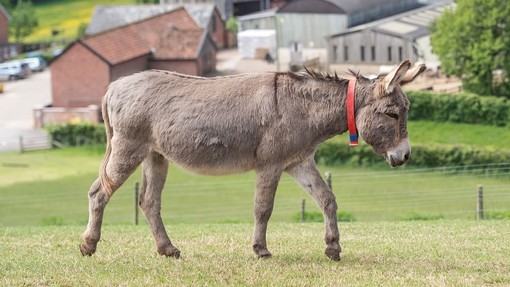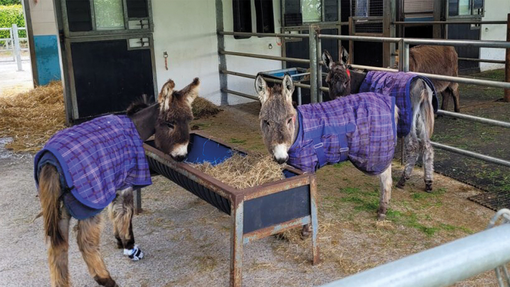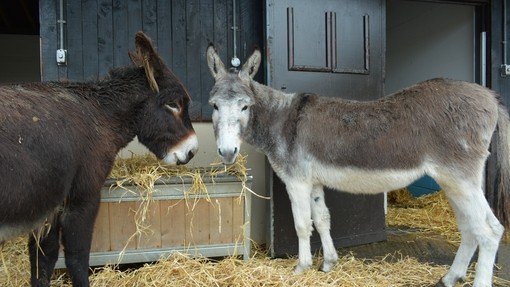How much does a donkey weigh?
The weight of a donkey will vary depending on their age and breed, but an adult donkey could weigh anything between 100-500 kg. Our own herd contains various shapes and sizes, for instance, a standard size donkey could weigh 165 kg compared with a miniature donkey that could weigh 144 kg.
Keeping a regular record of your donkey’s weight and general condition can be very useful for monitoring their overall health. We recommend that this is done monthly so you can quickly spot if any problems arise.
How do you weigh a donkey?
For donkeys over the age of two, their weight can be estimated using height and girth measurements. Using our weight chart, you can estimate your donkey’s weight simply by plotting their measurements on the graph. For instance, a donkey 104 cm tall, with a heart girth of 122 cm, should weigh 181 kg.
Download our Donkey Weight Estimator chart and Donkey Body Condition Score Chart.
Dealing with an underweight donkey
If you find that your donkey is underweight, consult your vet first to rule out any underlying health issues. It could be related to a number of things, such as any previous neglect, their age, dental problems, the time of year, the quality of your feed or even a lost companion.
Donkeys should be weighed and condition scored regularly to monitor weight loss/gain. If your donkey is underweight, the provision of shelter is essential, but you should also consider a donkey rug to keep your donkey warm during the colder months. Underweight donkeys should not be initially overfed and any changes to their diet should be gradual.
For more information on managing weight gain:
Caring for an overweight donkey
If your donkey becomes overweight it’s important that you address the issue as soon as possible. Weight loss should be gradual, at no more than 5 kg a month, and is achieved by choosing appropriate feeds that are low in energy but high in fibre.
- Do not starve an overweight donkey as this could cause unnecessary stress or hyperlipaemia
- Feed ‘little and often’ to ensure your donkey is trickle feeding as they would in the wild
- Avoid cereal-based feeds and sugary treats - high fibre nuts can be substituted for training incentives and use non-feed boredom breakers such as old wellies and horse toys
- Consider your grazing management - donkeys will gain weight on grass, so a bare paddock or sand school may be more appropriate
- Position feeders, water and shelter to encourage maximum movement from your donkey throughout the day.
For more information on managing weight loss:





